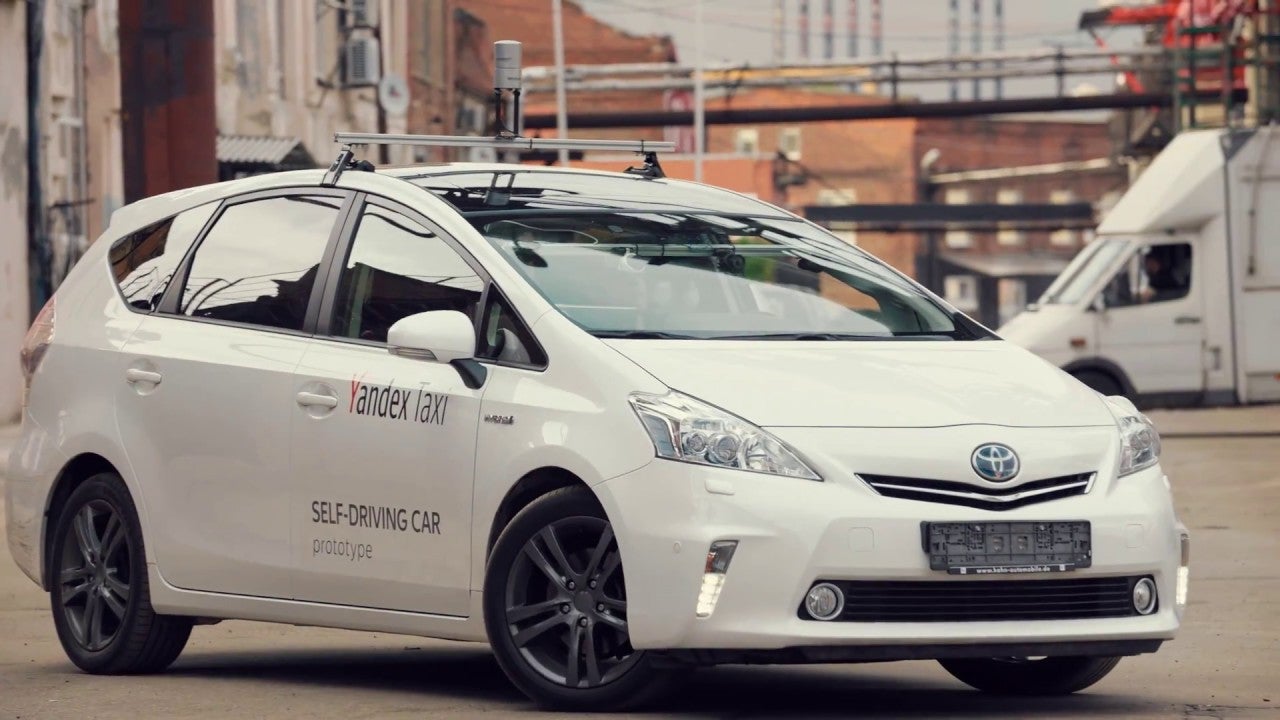Russian Tech Giant Yandex Jumping Into the Self-Driving Taxi Fray
The company believes its existing software will give it an advantage in the autonomous taxi race.

Self-driving cars may still be in the development phase, but members of the public are already getting rides in them. Uber and Waymo are using on-demand ride-sharing to test their cars, and startup NuTonomy launched a limited autonomous-taxi service in Singapore last year. Now, Russian tech giant Yandex has become the latest entrant in the race for self-driving taxis.
The company is testing a prototype self-driving car ahead of launch of its own self-driving taxi service, according to TechCrunch. The prototype, based on a Toyota Prius V, isn't testing on public roads yet, but Yandex hopes to hit that milestone within a year. It's unclear where the company intends to test the vehicles publicly.
Yandex believes lessons learned from its other services, including Yandex.Navigator and Yandex.Maps, will help give the new Yandex.Taxi an edge over competitors in the emerging robo-taxi field. Anonymized data from Yandex.Navigator gives the company its own source of real-time traffic information, for example.
Yandex claims to have developed all of the software for its self-driving car in-house. However, it uses hardware from outside suppliers, including a Velodyne LIDAR unit and Nvidia control computer. Like other tech companies, Yandex also probably won't build its own cars, instead retrofitting cars supplied by automakers.
The Russian company faces stiff competition in the fight to fill city streets with self-driving taxis. NuTonomy already operates a handful of self-driving cars in Singapore, and hopes to fully commercialize the service with "thousands" of cars by 2019. Many of the major autonomous-driving players, including Uber, Ford, Tesla, and General Motors, are planning to use self-driving cars in ride-sharing services.
All of this means many people's first experience of a self-driving car will probably involve hailing one with an app, rather than walking into a dealership and buying one. But while companies seem to have the business model all figured out, self-driving cars still face a number of regulatory hurdles. It's still unclear how autonomous vehicles will fit into a legal environment designed around human-driven vehicles.

